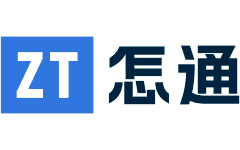Introduction to PCB Assembly
The acronym PCB stands for Printed Circuit Board, an integral component in the realm of electronics. It serves as a platform where electronic components are interconnected to form a complete circuit. The assembly process, often referred to as PCB assembly or PCBA (Printed Circuit Board Assembly), involves attaching electronic components onto the board and soldering them in place to create a functional circuit. This foundational technology is essential for virtually all electronic devices, from smartphones to computers and everything in between.
Components of a PCB Assembly
A typical PCB assembly consists of the printed circuit board itself, along with various electronic components such as resistors, capacitors, integrated circuits, and connectors. These components are carefully placed onto the board using automated machinery or manual labor, depending on the complexity and volume of production. The PCB design dictates the placement of these components to ensure proper electrical connections and minimal signal interference.
Manufacturing Process
The manufacturing process of PCB assembly involves several stages including printing, etching, drilling, plating, and finally, mounting and soldering components. Advanced techniques like surface-mount technology (SMT) and through-hole mounting are employed based on the requirements of the board. Quality control measures are paramount during each step to ensure that the final product meets stringent standards for performance and reliability.
Design Considerations
Designing an effective PCB requires careful consideration of electrical properties, mechanical strength, and thermal management. Circuit designers must take into account factors such as current flow, voltage levels, and potential interference when laying out the board. Additionally, the physical layout must accommodate the size and type of components being used, as well as any heat dissipation needs.
Applications of PCB Assembly
PCBs are ubiquitous in modern technology, finding applications in communication devices, medical instruments, transportation systems, and consumer electronics. Their miniaturization capabilities have allowed for significant advances in portable devices, while their reliability ensures the smooth operation of critical infrastructures such as power grids and telecommunication networks.
Future Developments in PCB Technology
As technology continues to evolve, so does the field of PCB assembly. Innovations such as flexible PCBs, high-density interconnect (HDI) technology, and environmentally friendly manufacturing processes are shaping the future of this industry. Smarter and more connected devices demand advanced PCB solutions that can handle increased data rates and complex functionalities.
Challenges and Trends
Despite its widespread use, the PCB assembly industry faces challenges such as material shortages, rising costs, and environmental concerns related to e-waste disposal. Industry trends point towards greater automation, improved materials research, and more sustainable practices to mitigate these issues. Furthermore, there is a growing emphasis on standardization and modular design to streamline the production process and reduce costs.
Conclusion
In conclusion, PCB assembly is a vital process that underpins the functionality of countless electronic devices. Its intricate combination of design, manufacturing, and technology integration makes it a cornerstone of modern electronics. As we look to the future, advancements in PCB assembly will continue to drive innovation across various industries, ensuring that our technological landscape remains dynamic and responsive to changing needs.
免责声明:文章内容来自互联网,本站仅提供信息存储空间服务,真实性请自行鉴别,本站不承担任何责任,如有侵权等情况,请与本站联系删除。
